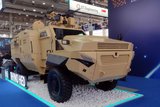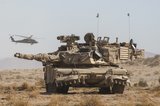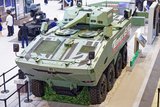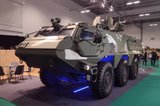Ceradyne wins US body armour contract
Ceradyne, a part of 3M, has been awarded a $92.7 million contract by the US Defense Logistics Agency to supply and deliver 177,000 body armour plates, 3M announced on 18 May.
The production and deliveries are expected to start in 2016. The plates are designed to meet the US Department of Defense's performance requirements. They will be worn by US marines, airmen, sailors and soldiers.
The armour plates to be delivered under this contract are enhanced small arms protective inserts that can be inserted into modular, outer tactical vests for torso protection against small arms fire. The US armed forces routinely use these plates for battlefield protection.
Cheryl Ingstad, business manager at Advanced Ceramics Platform – Defense, 3M, said: '3M is pleased to win this contract, and we are honoured to provide body armour for the US military.
'We continue to make it our mission to leverage innovation in advanced materials science and the manufacturing process to deliver highly engineered body armour that meets the exacting quality standards of the U.S. Department of Defense. We never forget that the primary purpose of every body-armor plate is to save the life of the military member who wears it.'
Ceradyne has fielded over two million body armour inserts and 100,000 enhanced combat helmets for US armed forces.
More from Land Warfare
-
![CAVS rides a wave and prepares for surge requirements as orders roll in]()
CAVS rides a wave and prepares for surge requirements as orders roll in
The Common Armoured Vehicle System is continuing to rack up orders as the British Army looks likely to become an operator of the vehicle, while Italy and Ireland are also contenders.
-
![US DoD task force’s DroneHunter acquisition lays groundwork for Replicator 2 CUAS strategy]()
US DoD task force’s DroneHunter acquisition lays groundwork for Replicator 2 CUAS strategy
As the US Department of Defense looks to counter the growing threat of uncrewed aerial systems to improve homeland security, the DroneHunter acquisition could point to future commercial innovation.
-
![Norway opts for Hanwha’s Chunmoo for long-range fires under $2 billion deal]()
Norway opts for Hanwha’s Chunmoo for long-range fires under $2 billion deal
The selection of Hanwha’s K239 Chunmoo long-range precision fires system, with a contract expected to be signed on 30 January, makes Norway the second European country to choose the system. It is expected an operational system will be in service within four years.























